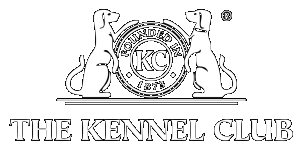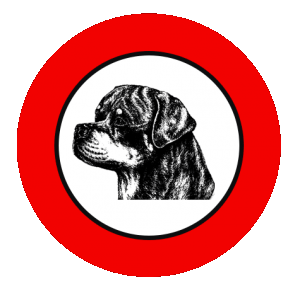
ASSURED BREEDER SCHEME MEMBER


A R V
 ASSURED BREEDER SCHEME MEMBER |
 |
 A R V |
|
|
TRAINING |
Socialising is the time when your
puppy starts to take an interest in whatever is going on around them. It is also
when they’ll pick up the basic rules of social behaviour before you start to
train them. At approximately four to twelve weeks new objects and sounds will
intrigue them. As babies like to put everything in their mouths, so will they –
noting will escape a lick or a chew (including you) as they play
Here is a list of the kind of situations you will experience during this
important stage of your puppy’s development:
Make sure they have plenty of contact with people and common household objects,
sight and sound.
If you buy an older puppy, check they are at ease with it; as they may be
frightened and distressed when faced with them for the first time.
Take your puppy out and about as
soon as possible but avoid contact with other dogs that you don’t know are
vaccinated. By carrying them you can introduce them to crowds and traffic in a
safe way. Once their vaccinations are complete your puppy can then learn to
interact with other dogs. Unless your puppy becomes too boisterous, most adult
dogs won’t be aggressive. A well timed growl or snap should put your puppy in
their place; always remember it’s good for them, try not to be over protective.
Ask your local vet or local dog training club about puppy playgroups.
As soon as you can, introduce your puppy to children of all ages under close
supervision.
Familiarise your dog with car travel at an early age. Little and often is best
to start with, take them for a ten minute journey for a few days, gradually
increasing the length of the journey until they become entirely comfortable with
it.
Try to make sure your puppy learns to accept veterinary examinations at an early
age. If you make the first visit to the vet as pleasant as possible (quiet, calm
and comfortable) they won’t be frightened.
In the wild, dogs live in packs and follow a strict social order. As the owner
you are now your puppy’s pack leader, in other words; you’re in charge.
Instinctively this is what your pet wants. They will be very content to follow
your command if you train them correctly. What they learn at an early age will
determine how they behave for the rest of their life, so start training them
sooner rather than later. (This does not apply to toilet training as you’ll read
about shortly)
This section will give you the basics and get you both off to a good start. But
don’t worry if progress is slow – as long as it’s steady, that’s what matters.
You could also take your puppy to training classes; they are friendly,
supportive and a great way to meet other dogs. For information on local
trainers, write to the Kennel Club 1-5 Claridges Street, Piccadilly, London WIY8
AB.
GOOD DOG, BAD DOG
When training your puppy it’s important to praise him immediately after good
behaviour. If you hesitate, he won’t understand exactly what he is being praised
for and will be confused. The same goes for punishing bad behaviour, always at
the time and
never a second after. Even if you’re faced with havoc he has created while you
weren’t around, don’t be tempted to scold him, as he won’t understand and may
start to fear you.
IMPORTANT WORDS
From a very early age your puppy must learn their name. Once they know it will
encourage them to respond to you almost immediately; not after a five minute
sniff around the park. The other word you’ll want them to grasp very quickly is
“NO”. When you see your puppy doing anything naughty, you should say “NO”
Firmly, Calmly and stop them from continuing the action and turn your back. Then
wait until he shows good behaviour before giving him praise for obeying. From as
early as six weeks you can teach your puppy to obey simple commands. Use short
words with different sound’s, “HEEL”, “SIT”, “STAY” and “COME” for example.
OBEDIENCE TRAINING
It’s best if everyone in the family is involved with the obedience training. If
your puppy only learns to obey you, it may lead to problems. Make sure everyone
uses the same commands – lack of consistency mean a lot of confusion for your
puppy.
TOP TIP
Don’t praise them if they begin to sulk – they’ll start to think its good
behaviour. Never send your dog to his bed as punishment, they’ll end up
disliking it and won’t want to sleep there.
HOUSE TRAINING
To help your puppy understand his place in his new pack, always greet members of
your family, before you greet him. By doing this, you’re reinforcing the correct
social hierarchy.
Your puppy needs to go to the toilet quite a lot. Get used to picking up on the
warning signs and you’ll soon minimise the mess. Walking in circles, sitting by
the door, or giving you a look are indications he needs to relieve himself. When
this happens, quickly place your puppy on a piece of newspaper. Gradually move
the newspaper towards the door until it is outside. Then start taking your puppy
to the area first thing in the morning, after meals and drinks, after they wake
up from a nap, and at night. Eventually your puppy will learn to go there
automatically, but don’t rush or force this understanding. Until your puppy is
three to four months old they are less able to control themselves. Never punish
your dog or rub their nose in the mess when they have an accident, they won’t
understand and it will only serve to slow down his progress. When they make a
mess, be sure to clean it up as soon as possible because the smell of it will
stimulate them to do it again.